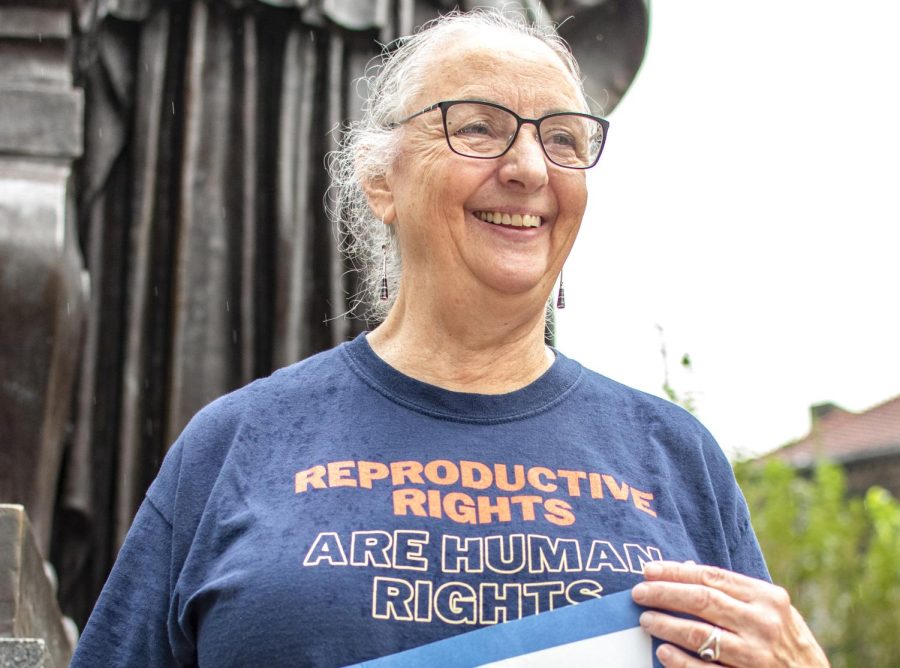The local activist and her long fight for social equality
Cloydia Hill Larimore is a local activist who attended this year’s CU Women’s March and has been protesting for women’s rights in the community since she was a teenager.
Oct 13, 2021
The early morning sun illuminated the wooden desks of an Urbana high school classroom when suddenly, commotion resonated through the hallways.
“Come on, we’re leaving!” shouted several voices.
Despite teacher protests, the students left their rooms. They exited Urbana High School and walked quietly to the Wesley United Methodist Church, and back.
It was April 5, 1968 — the day after Martin Luther King Jr. was assassinated.
The Urbana MLK march was the first of a long resume of protests and acts of service that social activist, Cloydia Hill Larimore, participated in.
Get The Daily Illini in your inbox!
Larimore, a resident of Urbana for 58 years, witnessed first-hand Champaign-Urbana’s social, physical and cultural evolution.
Larimore’s first experiences with activism started when she was president of her junior class at Urbana High School.
“We started getting an after-school group together to talk about racial and community issues,” Larimore said. “Urbana in the late ’60s was very much still segregated. There was no cultural or ethnic diversity.”
In addition to speaking out against segregation, Larimore was, and still is, involved with women’s rights.
Larimore said that when she was a student at the University, women could not play sports and didn’t occupy any executive positions.
“Women would joke about how they were just here to get their M-R-S degree,” Larimore said while frowning.
Speaking out against discrimination and pushing for change is something Larimore is just as passionate about today as she was back then.
Although Larimore said women’s rights have substantially shifted in the right direction since the ’70s, she continues to march and did so at the C-U Women’s March on Oct. 3.
“We have to keep constantly remembering what we’re here for, and to make sure that we don’t fall asleep or lose touch with what we’ve achieved,” Larimore said.
Over the years, Larimore has marched for several movements: women’s rights, Black Lives Matter, March for Our Lives, etc.
However, Larimore said the biggest impact she’s had on her community has been with the Cunningham Children’s Home.
Larimore served as their vice president of Advancement for 25-years. She saw the home morph from an orphanage to include a foster care program, educational resources and counseling.
“I know some kids who are now adults that have children of their own that wouldn’t be alive today if it weren’t for Cunningham,” Larimore said. “They’ve told me that. That place saves kids’ lives. It’s huge knowing that you had a positive impact on people’s lives.”
Larimore said she values the thriving cultural scene in Champaign-Urbana.
“I love being able to go to a coffee shop and sit there and not hear English,” Larimore said. “Even though you’re in a small community, you get to see that the world is bigger than just what you see here.”
Larimore said that her fascination for different cultures has blossomed while the diversity of Champaign-Urbana has grown. She said in the ’60s, there was only one person of color in her junior class.
Larimore said she hopes the city continues to grow and keep it’s tight-knit community feel even when she’s gone.
“I’m 70 years old – I’m in the last third of my life,” Larimore said. “I’m starting to lose friends and family.
“At this point in my life, what is important is realizing how lucky we all are that we woke up this morning and to take every moment and do what we can with it. Continue taking care of each other and make the world and where we are better for all of us.”






